When it comes to recruitment in Indian Armed Forces (Airforce, Navy and Army) as an officer, there is one common factor that comes in every possible recruitment entries and its called SSB (Service Selection Board) interview.
What is SSB Interview
In brief to reply “What is SSB Interview” we can say SSB interview or service selection board interview is a recruitment process under which a candidate skills are tested intellectually, physically, psychologically and through group activities. There are mainly two ways a candidate can get qualify for SSB interview: First, he/she has cleared the written exam based on particular type of entry; Second, a candidate can be selected on the merit list prepared on the basis of candidates academic records. Below discus are types of entries to get recruited in Indian Armed Force as a commissioned officer.
Types of Entries to Join Indian Armed Forces:-
1. NATIONAL DEFENCE ACADEMY (NDA): In this a candidate can get selected in to any of the branches of Indian Armed forces -Indian Air Force, Indian Army and Indian Navy.
Eligibility Criteria for NDA
Age: 6 ½ to 19 ½ yrs as of first day of the month in which course is due to commence
Qualification: 12th Class of 10+2 System of Education/Equivalent for Army and with Physics and Maths for AF/Navy
Training Academy: NDA , Khadakwasla, Pune
Notification: Conducted twice in a year by UPSC, notification is released around May/Jun and Dec
2. 10+2 TECHNICAL ENTRY SCHEME(10+2 TES): Through this entry a candidate will be selected in Indian Army as permanent commissioned officer.
Eligibility Criteria for 10+2 TES
Age: 16 ½ to 19 ½ yrs as of first day of the month in which course is due to commence
Qualification: 12th Class of 10+2 System of Education/Equivalent with a minimum aggregate of 70% in Physics, Chemistry & Maths(PCM)
Training Academy: OTA Gaya
Notification: It is conducted twice a year and notified by DG Rtg AG’s branch IHQ of MOD(Army) in May/Jun & Oct/Nov
3. INDIAN MILITARY ACADEMY (IMA) DIRECT ENTRY : To get selected in IMA, a candidate need to first clear combined defence services exam CDSE conducted by UPSC.
Eligibility Criteria for IMA DE
Age: 19 and 24 yrs as of first day of month in which course is due to commence
Qualification: Graduation from Recognised University.
Training Academy: IMA Dehradun
Notification: It is conducted twice a year and notified by UPSC under the aegis of CDSE in May/Jun and Nov/Dec
4. OFFICERS TRAINING ACADEMY ( NON TECHNICAL MEN ) OTA SSC: To get selected in OTA SSC, a candidate need to first clear combined defence services exam CDSE conducted by UPSC.
Eligibility Criteria for OTA SSC
Age: 19 and 25 yrs as on 01 Jan of the yr in which course is due to commence for Apr course and 01 Jul of the yr in which course is due to commence for Oct course
Qualification: Graduation from Recognised University.
Training Academy: OTA Chennai
Notification: It is conducted twice a year and notified by UPSC under the aegis of CDSE in May/Jun and Nov/Dec
5.NCC (SPL) ENTRY MEN: Through NCC entry a candidate will be selected in Indian Army and Indian Air Force
Eligibility Criteria for NCC SPL
Age: 19 and 25 yrs as of 01 Jul of the yr in which course is due to commence for Oct course and 01 Jan of the yr in which course is due to commence for Apr course
Qualification: Final year appearing/Graduate with 50% Aggregate marks, 2 Yrs service in NCC Senior Div Army with minimum ‘B’ Grade in ‘C’ Certificate Exam.
Training Academy: OTA Chennai
Notification: It is notified by Additional Directorate General Recruiting / AG Branch in Jun & Dec
6. JAG MEN: It is a special entry only for law graduates in Indian Army
Eligibility Criteria for JAG Entry
Age: 21 and 27 yrs as on 01 Jul of the yr in which course is due to commence for Oct course and 01 Jan of the yr in which course is due to commence for Apr course
Qualification: Graduate with LLB / LLM with 55% marks. Registered with Bar Council of India / State
Training Academy: OTA Chennai
Notification: It notified by Additional Directorate General Recruiting / AG Branch
7. UNIVERSITY ENTRY SCHEME: Candidates will be selected directly for Indian Armed Force through this entry.
Eligibility Criteria for UES (Pre Final Yr)
Age: 19 and 25 yrs as of first day of month in which course is due to commence
Qualification: Pre Final year students of Engineering Degree Course
Training Academy: IMA Dehradun
Notification: It notified by Additional Directorate General Recruiting / AG Branch in May. Applications to be forwarded to respective Command Headquarters as per the areas indicated in the notification.
7. TGC (ENGINEERS): Candidates will be selected directly for Indian Armed Forces through this entry.
Eligibility Criteria for TGC
Age: 20 and 27 yrs as of first day of month in which course is due to commence
Qualification: BE / B Tech final appearing & degree holders in notified streams of Engineers
Training Academy: IMA Dehradun
Notification: It is conducted twice in a year and notified by Additional Directorate General Recruiting / AG Branch in May/Jun and Nov/Dec.
8. SHORT SERVICE COMMISSION TECHNICAL MEN: Candidates will be selected for Indian Army through this entry.
Eligibility Criteria for SS (Tech)
Age: 20 and 27 yrs as of first day of month in which course is due to commence
Qualification: Engineering Degree in notified discipline
Training Academy: OTA Chennai
Notification: It is conducted twice in a year and notified by Additional Directorate General Recruiting / AG Branch in Dec/Jan and Jun / Jul
9. TGC EDUCATION (AEC): Candidates will be selected for Indian Army through this entry.
Eligibility Criteria for TGC EDUCATION (AEC)
Age: 23 to 27 years, born between – 2nd Jan to 1st Jan for Jan Course; 2nd Jul to 1st Jul for Jul Course
Qualification: MA / MSC in 1st or 2nd division in notified subjects from recognized university
Training Academy: IMA Dehradun
Notification: It is conducted twice in a year and notified by Additional Directorate General Recruiting / AG Branch in May/Jun and Nov/Dec
10. Air Force Common Admission Test (AFCAT): As an officer in the Indian Air Force a candidate depending on his/her qualifications, could join one of the various branches in the IAF:
- Flying Branch : Fighters, Transports and Helicopters
- Technical Branch: Mechanical and Electronics
- Ground Duty Branch: Administration, Accounts, Logistics, Education and Meteorology
Eligibility Criteria for AFCAT
AGE: 19 to 23 years
Qualification: Graduates (Minimum three year degree course) in any discipline from a recognised University who have attained minimum 60% marks in aggregate in all papers put together and have passed Maths and Physics at 10+2 level OR BE / B Tech degree (Four year course) from a recognised University with minimum 60% marks in aggregate in all papers put together
Training Academy: Air Force Academy
Notification: It is conducted twice in a year and notified by IAF in May/June and Aug/Sep
11. Graduate Special Entry Scheme (GSES) Indian Naval Academy, Ezhimala (Through UPSC) : Through this entry candidates can get selected for Indian Navy.
Eligibility Criteria for Graduate Special Entry Scheme (GSES)
Age: 19 – 22 years
Qualification: B.Sc (Physics & Maths) or BE
Notification: Advertised by Indian Navy through leading newspapers.
12. SSC Submarine Engineering: Men of age between 19-25 with BE/B.Tech in Mechanical engineering with minimum 60 percent can apply for this entry. It is notified by Indian Navy through leading newspapers.
What is SSB Interview process
In private sector or other competitive sector human resources depends on the philosophy of ‘Best Fit’ whereas in Indian Armed Forces selection is based on the philosophy of ‘Right Fit’. There are three major ways of testing candidates as per SSBs perquisite standards:
- Physiological test
- Interview test
- Group test
Detail about these test are discussed in below sections.
What is SSB Interview dates
A candidate whether he/she has qualified any armed forces entrance exam or made in the merit list of candidates based on academic records for any particular type of entry, to get called up for SSB interview candidates are first allotted with a roll number and sequenced in a list as per their roll numbers. This list is then published online by the selection board for the candidates to see. List contains detail like Name with respective roll numbers along DOB with date of reporting for SSB interview.
Selection board provides a candidate with two kinds of SSB interview dates one is Regular SSB interview date on which candidate is expected to arrive on the SSB interview center and second is Absentee SSB interview date, if a candidate due to unforeseen reasons is not been able to attend his/her SSB interview on as appointed regular SSB interview date then the candidate can attempt the same interview on absentee SSB interview date given the list or call letter provided the candidate have to mail in advance mentioning reason for failure to attempt SSB on regular date to respective selection board.
What is SSB Interview call letter
SSB Interview call letter is an official invitation send by selection board to the candidates on their respective mailing address or generated online, inviting candidates to attend their respective SSB interviews for recruitment in Indian Armed Forces. Generally SSB interview call letter consist of candidates personal details such as Name, address, individually appointed roll number, identity photo, venue for SSB interview and instruction to reach the venue along with other information that a candidate should know before leaving for his/her SSB interview.
What is SSB Interview venue or what is SSB interview center
SSB interview venue or centers are the service selection board official station where all the SSB interview related process takes place. Candidates are called from all over the country and formed in batches for the process. Below given are list of venues of service selection board where SSB interview takes place for different kinds of entry for Indian Armed Forces.
SSB interview centers for Indian Army
- Allahabad, UP Selection Center East (SCE)
- Bhopal, MP Selection Center Central (SCC)
- Bangalore, KA Selection Center South (SCS)
- Ropar, PB (proposed) Selection Center North (SCN)
SSB interview centers for Indian Air Force
- Dehradun, UK 1 AFSB
- Mysore, KA 2 AFSB
- Gandhinagar, GJ 3 AFSB
- Varanasi, UP 4 AFSB
- Kolkata, WB 5 AFSB
SSB interview centers for Indian Navy
- Bhopal, MP 33 SSB, SCC
- Bangalore, KA 12 SSB, SCS
- Coimbatore, TN Naval Selection Board (NSB), Agrani
- Visakhapatnam, AP NSB Visakhapatnam
What is SSB interview instructions
Below given are some basic instructions to be followed by a candidate going to attempt a SSB interview:
- Candidates are provided with SSB venues when called for SSB interview along with the pickup address and time, generally candidates are picked up by selection board at the railway station on the on the appointed date at pre-informed time. It will be wise for candidates to follow the same otherwise there are chances that he/she might get disqualify to attend the interview.
- It is advised to candidates to attend the interview on regular dates instead of absente date, two things are there one on regular dates candidates appearing are less as compare to absente batch hence less completion and second administration and management become easier and this will make the process more fair and justifiable.
- SSB interview is divide in two stages first is screening test and second is 5 day process containing psychological and group test and personal interview.
- Free boarding and lodging will be provided to you for the period of your stay at the Selection Centre.
- A candidate is needed to bring his/her call letter at the SSB cater along with other important items such as: academic document, shoes – formal and sports, clothes-formal (for interview) and sportswear well advised are white T shirts and Half pants for physical activities, etc.
- Candidates are entitled to get traveling allowance in case they are coming to SSB for the first time for the entry.
- A candidate should be physically fit and free from ailment or any health problem which may hamper his/her performance in the physical test/interview.
- Candidate will not visit testing areas after testing hours. The conduct of the candidates both in the Selection Centre as well as when visiting outside areas should be correct and gentleman like.
- Any contravention of above orders or any act of indiscipline will invite immediate cancellation of candidature on disciplinary grounds.
- Cases of serious breach of discipline and conduct will be handed over to civil police and FIR registered accordingly.
- Candidates are not permitted to use mobile phones during the conduct of tests.
What is SSB interview Screening Test
Day 1 of SSB interview is devoted screening procedure, hundreds of candidates arrive at day 1 of the SSB interview out of which only 40 to 50 candidates are screened in.
Screening Test consists of:
- Officer’s Intelligence Rating Test (OIR) – Verbal and Non verbal
- Picture Perception and Description Test (PPDT)– picture story writing, individual picture story brief description and group discussion on the Story
What is Officer’s Intelligence Rating Test (OIR)
After entering the SSB premises on day 1 candidates have to attempt first go through OIR test. The Intelligence Test comprises of two tests — Verbal and Non-verbal tests. These tests have 54-55 questions, and determine the Officer Intelligence Rating (OIR) of the candidate. They consist of simple linguistic, logical, analytical, and mathematical questions to test the basic common sense.
Verbal section in OIR test consist of questions based on topics such as: Relationship, Jumbled words, Coding/Decoding, Multiple choice question, Antonym and synonym, reconstruction of sentence, one word substitution, Odd one out, common sense and alphabet test, Arithmetic questions.
Non-verbal section in OIR test consist of questions based on topics such as: Which figure is different from the other, Completion of series, Locate the concealed figure, Fill in the correct figure.
What is Picture Perception and Description Test (PPDT)
After writing OIR test candidates have to simultaneously attempt PPDT test. In this test, a picture will be shown for about 30 seconds to candidates and one minute is given to determine the age, sex, mood of the person and to write the action. The next 4 minutes is given to write a story on the same. After that a group of aspirants are made to sit in front of the assessors for the discussion test which is the second part of the PPDT.
Group Discussion in SSB Interview
In general in a group communication a discussion meet the traits like disagreement, conflicts, dissatisfaction, disapproval and emotional disorder. In these cases a skilled person knows how to react to such contradictions. In the group discussion how is everyone competitive mood is the plot of interest for the assessors. Whether are you able to be emotionally stable? Or are you able to maintain the degree of patient listening?
Differences are and bound to happen and one should have the emotional stability to resolve the emotional disturbances and emotional disorders.
Tips on Group discussion:
- Tame your words, tone and gesture when in discussion.
- Taking into consideration of others interest and reciprocating in a very acceptable manner / humble-disagreement show the skill of management of contradiction.
- Positive body language is required it shows mental acuity and intentions of the person, aggression without hard facts and impressive words will cause harmful effects.
- Story should be presented it with an example of valour, brain (strategies and tactics) and humanity, no need to show that you know it all imposing your smartness over others make bad impression on the assessors.
Only thing is make a simple nice story – articulate it well – listen to others – present your point nicely with nice gestures to everybody – don’t let discussion distract from the topic – be good team player.
What is SSB interview Psychological Test
Candidates who have cleared the day screening test are thus forward formed in to groups of 8 to 10, generally one SSB interview batch consist of 5-6 groups each group having 8 to 10 candidates.
SSB interview Psychological Test
Psychological Tests are conducted to check the response of the candidates on the usual conditions which they face on day-to-day life. It helps in recognizing the candidates various emotional and behavioural reactions on different degrees.
Sections of Psychological Test
1. Thematic Apperception Test (TAT): TAT consists of set of ambiguous pictures that will be shown to the candidate, while looking on these pictures candidates must create a theme like a story which requires a hero and a challenge, how the hero will overcome the crisis and succeed.
In TAT a candidate will be asked to write a story from his own based on the images shown. A candidate shouldn’t just use his memory blocks and start preparing a story, he/she needs to see that every third or fourth line there is different meanings are coming, try interpretation and analyze those meaning as third person because that meaning shows candidate’s state of mind.
Tips on Thematic Apperception Test (TAT)
Consider these points while attempting TAT
- What has led up to the situation.
- What the characters are feeling and thinking.
- What is happening at the moment.
- What is the final outcome of the story.
2. Word Association Test WAT: To simply put this test observe candidates imagination and evaluate his/her qualities of individual ideas. In this test candidate will be shown a word and he/she is required to form a meaningful sentence using that word. On seeing a word there might be different ideas in candidate’s mind related to that word but he/must must write the first spontaneous reaction in your answer sheet.
Tips on WAT
- Evaluation is one of the major tools of mind, in WAT sentence made by candidates also show his/her evaluation strength. So, a candidate must work on his evaluation skills on day-to-day happenings it will help him/her to get in in required gear.
- Information of routine day-to-day life happening varies from person to person. A candidate must see how information is best framed to be acceptable by lot of people.
- Be Logical and a keen observer these traits are easily apprehended by psychologists by the candidate’s performance in WAT.
3. Situation Reaction Test (SRT): Situation Reaction Test (SRT) is another test at Service Selection Boards in Psychologist series, this is test of candidate’s common sense, he/she will be given some situations that occur in daily life and their answer will help the Psychologist to judge candidate’s mentality.
- Candidate’s will be given a booklet containing 60 situations which he/she has to answer in 30 minutes, this time limit has been intentionally shortened as to ensure that the candidate gives the first reaction which comes to his mind without thinking much over it.
- The answer to the SRT will therefore reflect the aspirant’s power of understanding, practical ability, initiative, temperament, imagination, resoluteness, social behaviour, consistency, stability under stress in varying conditions.
- The psychologist is mainly interested to observe, whether the aspirant reveals a co-operative attitude or a negative or obstructive behaviour, whether he places the group before self-interest.
- Carefully ensure that choices are and the answer reveals candidate’s attitude.
4. Self-Description Test (SD): SD is the last test in Psychologist test series at Service Selection Boards. It may be the last test but as important as the first one, this test con s the finding of Psychologist about a particular candidate which he makes by the previous tests like TAT, WAT and SRT.
This test gives an idea to the Psychologist regarding how deep the candidate has knowledge about him, weather he knows his Qualities and Shortcomings or not.
In this test the candidate is required to write 5 paragraphs on What his Parents, Teacher/Employer, Classmates/Friends, Candidate’s own opinion about himself and what qualities he would like to develop for the future
What is SSB Interview Group Task (GTO)
GTO Tasks is the second set of tasks which is conducted after the psychological tests.
The GTO Tasks are designed to test the sociability speaking skills of a candidate. An officer has to perform his duties along with his colleagues
Domains of GTO:
- Group discussion: In GD, there is usually two rounds of discussion. In the first round, the GTO announces three sets of topics and the candidates can select any one from among them. This test is designed to check the general speaking skills of a candidate.
- Group lecture: The candidates are made to sit in a circle and every candidate is given a topic and he/she has to speak on it. The time allotted is three minutes.
- Progressive Group Task PGT: PGT is about set of obstacles in ground in a specified area in that team members should cross each obstacle defined by set of rules. To cross those obstacles, some helping materials are given by the G.T.O. i.e. Balli (wooden log), Plank, and rope to tie these. The difficulty of the task increases from one obstacle to another in a progressive manner. So it is named as Progressive Group Task.
- Half Group Task H.G.T: HGT is similar to PGT, but the difference is that the group is divided into two sets. Like this the GTO will see the performance of the candidates in close. The rules are same for this like PGT.
- Command Task (CT): The aim of this task is to find the commanding capability of the candidate. The candidates are allowed to choose two members from the group. The candidate should have to cross an obstacle with the allotted men and the resources available within allotted time.
What is SSB Interview conference and personal
SSB Personal Interview
Personal Interview is one of the observational techniques used in the selection procedure at the SSB’s. Briefly, the interview technique consists of establishing an effective two way communication process between the interviewer and interviewee for transfer of information. In this situation, the two people interact freely and establish contact or ‘rapport’ with one another. The interviewee is encouraged to take progressively larger part and has to do the maximum of the talking process.
The Interviewing Officer tries to estimate the individual’s planning and organizing ability, his ability to communicate ideas clearly, his ability to work with others in a group, his level of emotional stability to tolerate stressful situations and finally, his potential growth mainly through careful probing into his past development history.
During the interview, the Interviewing Officer (I.O) keeps a close watch on the facial expressions and body language of the individual, which provides critical supplementary information to assess a personality and evaluate his suitability for the job.
Personal Interview consider following traits:
- Rapport Building:O creates an environment for interview. I.O establishes a rapport with the individual through casual talks bringing the candidate in his/her comfort zone. Series of undisputed questions are thrown so as to make candidate frank and truthful.
- Rapid Fire: A series or a bunch of questions either 10 to 15 or 20 depending upon your intellectual level is fired which includes family and educational background, sports and extra-curricular background and likewise. Testing candidate’s priority, intellectual capacity, his/her retaining capacity, panic points.
- Routine: It is established that the daily routine shapes one’s personality. It gives certain individual information like punctuality, commitment, sense of responsibility, accountability, motivation, persistence etc.
- Personal Achievements: The achievements of the individual are it in any field like education, sports, extra-curricular activities, or anything else that the person would like to mention. This would reveal his level of aspiration and motivation.
- Hobbies, Interests and Likings: What sort of hobbies does one pursue, what type of people, food, friends, places, books, role models, favourite actors, personalities etc are all asked to judge candidates liking and dislikes.
Similarly other topics that are included in PI are: organizational abilities, current affair, family support, independency, friends other relations, leadership, history etc.
SSB Conference Round
In Conference all assessors like Psychologist, GTO, the Interviewing officer and the President of the Board will sit together and discus candidates performance of last 5 days and take a vote whether to recommend him/her for Medicals or not.
General Question in SSB Conference:
- What did you learn from SSB this time?
- Where did you go?
- How do you rate your performance?
- Rate your performance out of 10?
- How did you improve this time?
- Who is the best candidate in your group?
- How was the stay?
- How was the food?
- Any suggestion for improvement of SSB.
- Some SRTs or other questions if you are boarder line case.
Points that are noticed by assessors in conference about candidate’s
- Officer like qualities
- Personality traits
- Leadership qualities
- Moral integrity
- Social adaptability
- Social effectiveness
- Dynamism
- Gentlemen behavior


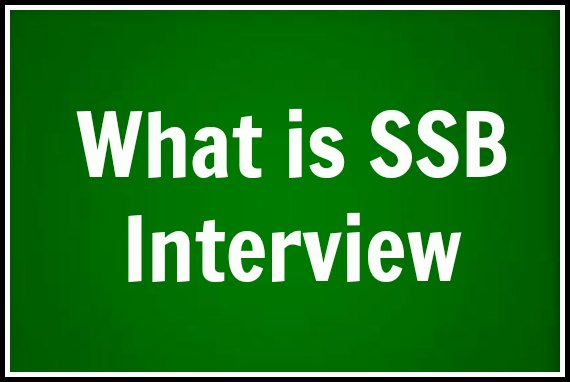
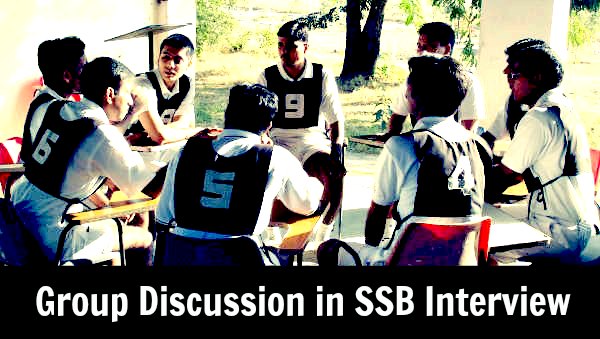
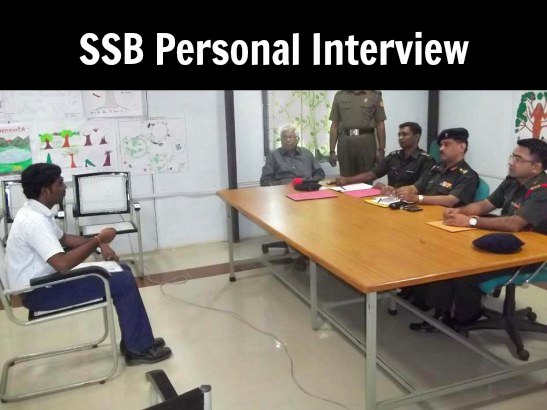
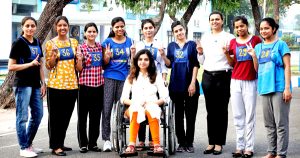
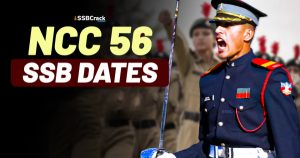
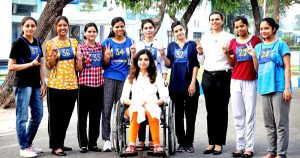
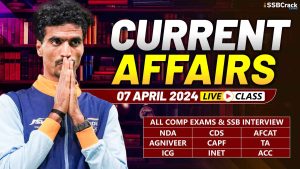
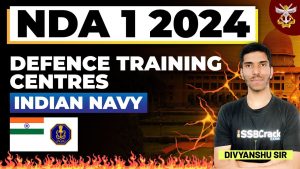
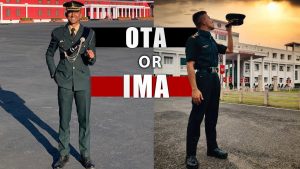
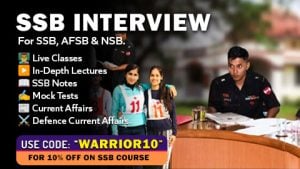
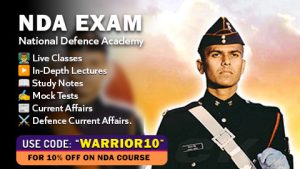
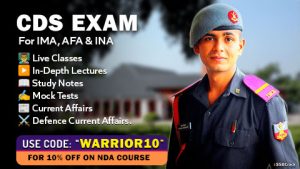
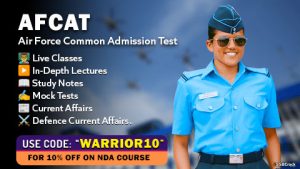
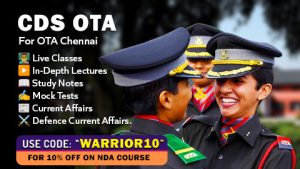
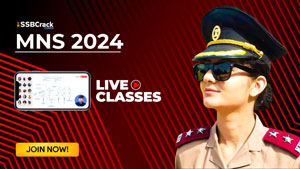
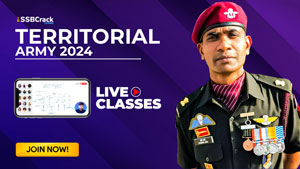
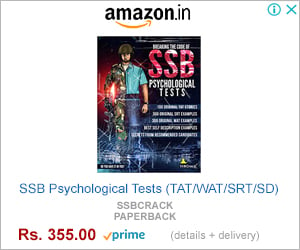
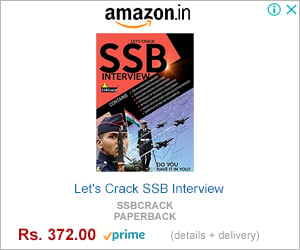
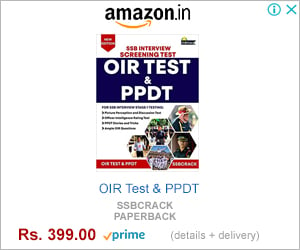

sir,i found that in final merit list some of the candidates are shortlisted for more than one academy …..how was it????>
I want crack ssb exam so how can possible..
plzz give reply fast.